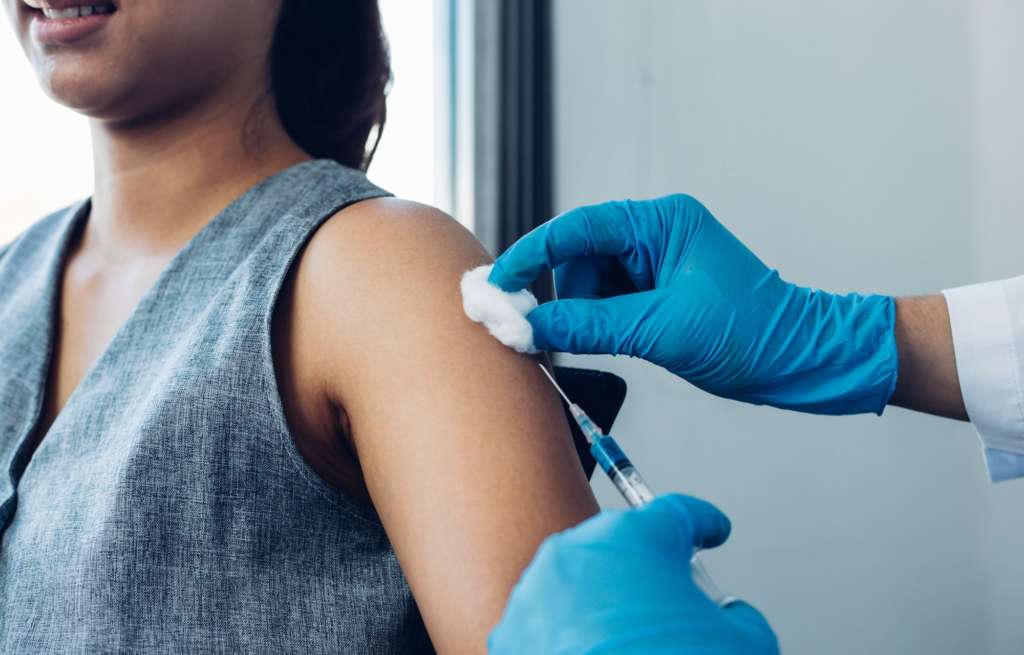Hyperemesis Gravidarum Treatment: What is our HG Vaccine?

Nausea and vomiting in pregnancy (NVP) is one of the most common symptoms of pregnancy affecting 50–85% of all women during the first half of pregnancy. Symptoms usually start between 6 and 8 weeks of gestation, rise to a peak before the end of the first trimester and, in the majority of women, resolve by 20 weeks. Most women (65–70%) self-manage their symptoms with avoidance of dietary triggers and oral hydration.2 However, in the remainder, symptoms are more severe and/or protracted, leading to physical and psychosocial sequelae. These can include reduced quality of life (QoL), lost work time and negative effects on relationships with family and friends.
The most severe form of NVP is referred to as hyperemesis gravidarum (HG), and is reported to affect 0.3–1.0% of pregnant women. It is characterised by intractable vomiting, dehydration, ketosis, electrolyte imbalance, nutritional deficiencies and weight loss (usually defined as > 5% of pre-pregnancy weight). However, there is no widely accepted point at which NVP becomes HG. Likewise, the distinction between studies of women with NVP and HG is generally not possible as the degree of dehydration and weight loss prior to the intervention are rarely reported. Furthermore, although some studies report baseline symptom severity using a validated scale, this is insufficient to make a diagnosis of HG.
How is NVP and HG similar?
At Antai Hospital, we understand both NVP and HG arise due to the presence of abnormal receptors being hyper-sensitive to the free-flowing pregnancy hormone: hCG hormone. Once it binds together leading to the a systemic phenomenon known as “central sensitization”. Since HG is considered the more severe version of NVP, this can be explained that HG patients carry far more abundant abnormal receptors than those who suffer from NVP (90% of mother’s experience this). For women who develop none of these symptoms, less than 10% of all women, can be explained that carry either insignificant amounts or no receptors, thus producing no reaction towards the present hCG molecule.
Assessment and diagnosis for Hyperemesis Gravidarum
The diagnosis of NVP/HG is made after excluding differential diagnoses, including gastrointestinal disorders, urinary tract infection, metabolic and endocrine disorders, drugs, psychological disorders (such as eating disorders) and other pregnancy-associated conditions (in particular molar pregnancy). However, there is currently no widely accepted approach to measuring the severity of symptoms in women due to the complexity of the condition. It is entirely done based on the patient’s medical history and the levels of symptoms the patient is exhibiting. At Antai Hospital, we have more than 20 years of experience in the proper diagnosis of HG.
However, although the measurement of NVP/HG symptom severity is the main aim for women and practitioners, other wider outcomes are also relevant when assessing the broader effectiveness of interventions.
Antai Hospital’s HG Vaccine Cures Hyperemesis Gravidarum
Our HG Vaccine works like a receptor blocker, a receptor antagonist that will effectively block the receptors (H2) responsible for the development of HG, thus it can cure HG both before pregnancy and even in the midst of pregnancy. These receptors are present in the chemoreceptor trigger, vestibular apparatus and visceral afferents. The treatment can be administered via intravenous injections or via oral medication. Once they are fully blocked, the patient will quickly stabilise to her normal state, with no more symptoms and a full recovery within just a few days.
Treatment success rates are up to 95% and cause no side effects to both mother or child. Get in touch with us today!